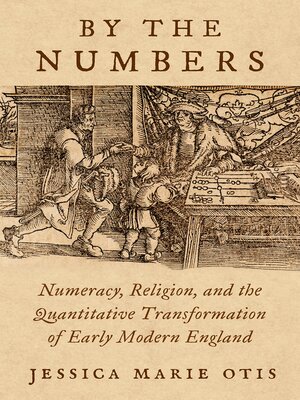By the Numbers
ebook ∣ Numeracy, Religion, and the Quantitative Transformation of Early Modern England
By Jessica Marie Otis

Sign up to save your library
With an OverDrive account, you can save your favorite libraries for at-a-glance information about availability. Find out more about OverDrive accounts.
Find this title in Libby, the library reading app by OverDrive.



Search for a digital library with this title
Title found at these libraries:
| Library Name | Distance |
|---|---|
| Loading... |
During the sixteenth and seventeenth centuries, English numerical practices underwent a complex transformation with wide-ranging impacts on English society. At the beginning of the early modern period, English men and women believed that God had made humans universally numerate, although numbers were not central to their everyday lives. Over the next two centuries, rising literacy rates and the increasing availability of printed books revolutionized modes of arithmetical practice and education. Ordinary English people began to use numbers and quantification to explain abstract phenomena as diverse as the relativity of time, the probability of chance events, and the constitution of human populations. These changes reflected their participation in broader early modern European cultural and intellectual developments such as the Reformation and the Scientific Revolution. By the eighteenth century, English men and women still believed they lived in a world made by God, but it was also a world made—and made understandable—by numbers.







